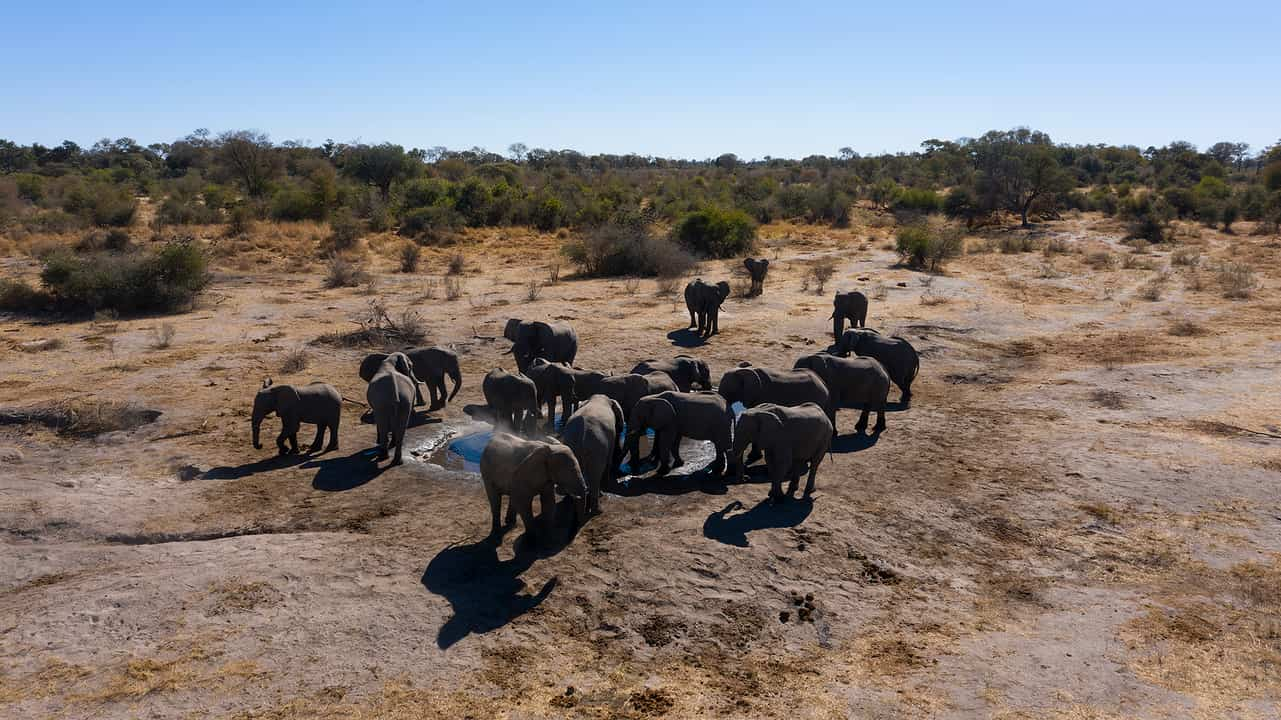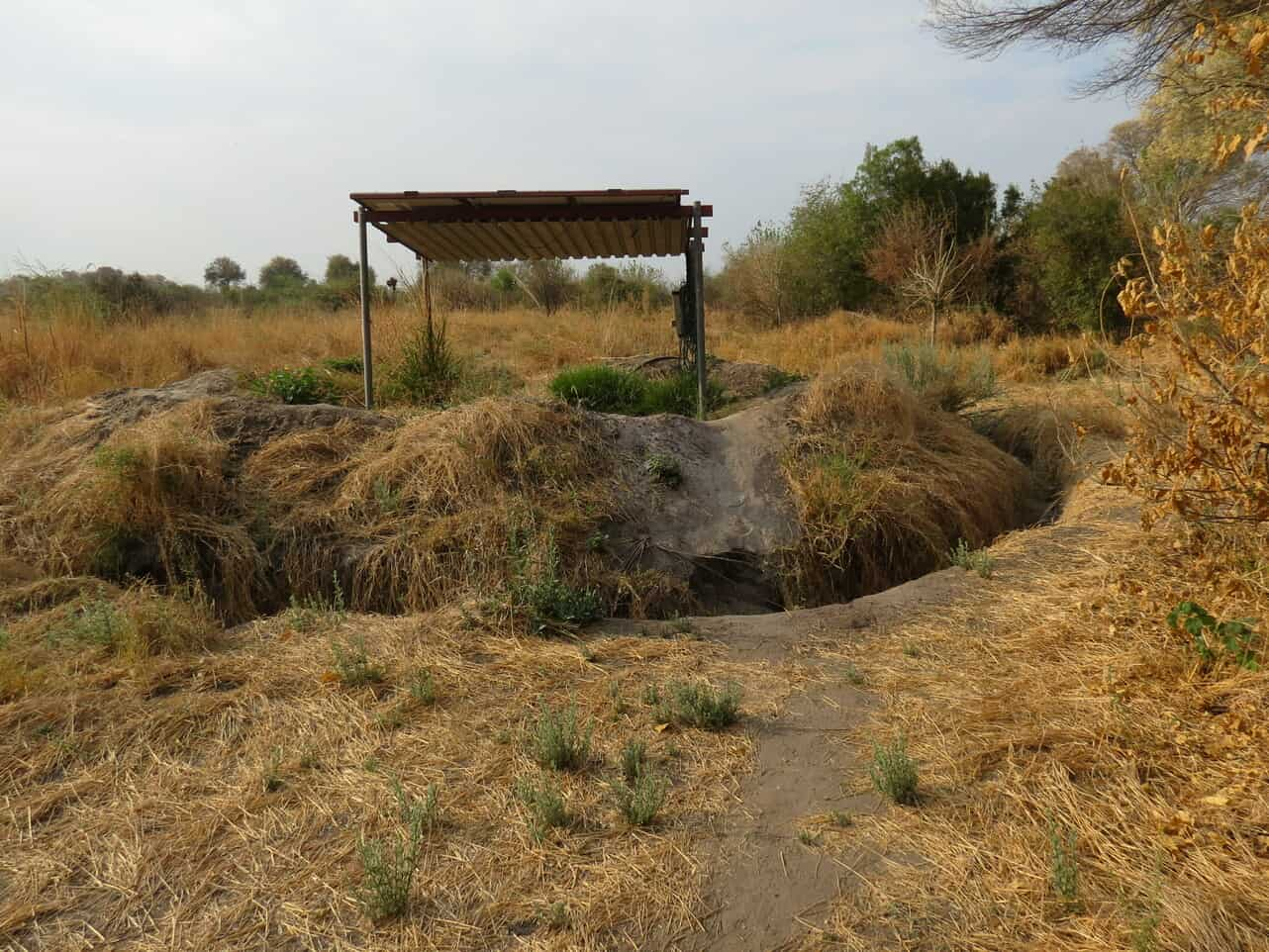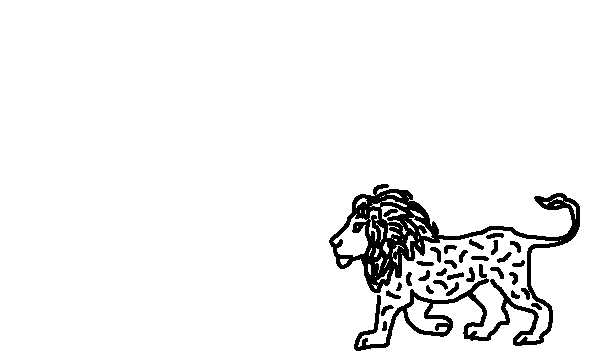Elephants can be a real problem for rural farmers in northern Botswana, especially during the late dry season when water becomes particularly scarce. And more to the point, elephants are exceptionally good at finding water even in a large plastic Jojo, and they will do almost anything to get to it. Add to that their size and strength, almost nothing is completely safe when it comes to their quest for water. 
Conflict issues like this are a simple direct consequence of population growth – and sometimes both people and wildlife grow and seek the same limited resources. As human populations expand, natural habitats shrink, and conflict between people and animals over critical resources like food and water increases. These interactions have negative impacts on human social, economic, and cultural life as well as on wildlife populations and the environment.
An initiative by The Habu Elephant Development Trust (HEDT) to reduce the human-wildlife conflict between farmers and elephants has focused primarily on the dry season limited water. Such conflict can take many forms ranging from damage to equipment and property to loss of life or injury for both people and animals,
Before HEDT’s elephant conflict interventions started, farmers would describe how elephants would destroy their water supplies by pulling out of the ground all their pipes or destroying their water tanks (jojos). Often, elephants became aggressive and threatened lives, and many elephants in the past ended up being shot. This was a poor solution because elephants can become even more aggressive when shot putting more lives at risk. One Habu farmer described how an injured elephant (suspected to have been shot) spent days parked by his borehole, completely preventing them from getting water for their livestock. Eventually, that elephant died before the farmer was able to pump water for his cattle.
The HEDT team together with Wild Entrust and the Community Scouts proposed a simple solution to help protect water supplies for Habu farmers: by digging in the hard clay earth a deep trench all around the tank, pump, and the borehole plumbing, they managed to prevent elephants from destroying boreholes. These trenches, born of hard work with pick and shovel, have proved to be effective: Mr. Elias Muatjitjija, a local Habu farmer says ever since the trenches were dug, they have not had any damage to the borehole pipes or jojos.
The trenching intervention was complemented by another HEDT conflict mitigation project. The HEDT, with a grant from the National Environment Fund, developed a borehole and two other well points on the outskirts of Habu in the Habu Community Conservancy. The purpose was to provide water for wildlife, and especially to persuade elephants to stay away from farmer’s water and the village. These water points attracted most of the other animal species including lions, leopards, kudus, zebras, and impalas to mention but a few. The water and the pumps used are guarded and operated by community scouts who make sure there is water being pumped into the riverbed to help keep the wildlife away from humans and grazing areas. These water points also have trenches around them.
HEDT’s trenched boreholes have brought a more passive, safe, and sustainable way of reducing the Habu community’s conflict with wildlife and created a system of coexistence between people and wildlife. Farmers are now less likely to shoot at elephants because the elephants no longer have access to destroy their boreholes. And the elephants are less likely to be aggressive due to no longer being shot at. Most of them now benefit from the access to water provided expressly for wildlife outside the village.
The water provision and protection initiative has already delivered results, but more boreholes for Habu subsistence farmers and wildlife are needed, and we can only do this with more support from you. Please visit www.wildentrust.org to support this program.

Conflict issues like this are a simple direct consequence of population growth – and sometimes both people and wildlife grow and seek the same limited resources. As human populations expand, natural habitats shrink, and conflict between people and animals over critical resources like food and water increases. These interactions have negative impacts on human social, economic, and cultural life as well as on wildlife populations and the environment.
An initiative by The Habu Elephant Development Trust (HEDT) to reduce the human-wildlife conflict between farmers and elephants has focused primarily on the dry season limited water. Such conflict can take many forms ranging from damage to equipment and property to loss of life or injury for both people and animals,
Before HEDT’s elephant conflict interventions started, farmers would describe how elephants would destroy their water supplies by pulling out of the ground all their pipes or destroying their water tanks (jojos). Often, elephants became aggressive and threatened lives, and many elephants in the past ended up being shot. This was a poor solution because elephants can become even more aggressive when shot putting more lives at risk. One Habu farmer described how an injured elephant (suspected to have been shot) spent days parked by his borehole, completely preventing them from getting water for their livestock. Eventually, that elephant died before the farmer was able to pump water for his cattle.
The HEDT team together with Wild Entrust and the Community Scouts proposed a simple solution to help protect water supplies for Habu farmers: by digging in the hard clay earth a deep trench all around the tank, pump, and the borehole plumbing, they managed to prevent elephants from destroying boreholes. These trenches, born of hard work with pick and shovel, have proved to be effective: Mr. Elias Muatjitjija, a local Habu farmer says ever since the trenches were dug, they have not had any damage to the borehole pipes or jojos.
The trenching intervention was complemented by another HEDT conflict mitigation project. The HEDT, with a grant from the National Environment Fund, developed a borehole and two other well points on the outskirts of Habu in the Habu Community Conservancy. The purpose was to provide water for wildlife, and especially to persuade elephants to stay away from farmer’s water and the village. These water points attracted most of the other animal species including lions, leopards, kudus, zebras, and impalas to mention but a few. The water and the pumps used are guarded and operated by community scouts who make sure there is water being pumped into the riverbed to help keep the wildlife away from humans and grazing areas. These water points also have trenches around them.

HEDT’s trenched boreholes have brought a more passive, safe, and sustainable way of reducing the Habu community’s conflict with wildlife and created a system of coexistence between people and wildlife. Farmers are now less likely to shoot at elephants because the elephants no longer have access to destroy their boreholes. And the elephants are less likely to be aggressive due to no longer being shot at. Most of them now benefit from the access to water provided expressly for wildlife outside the village.
The water provision and protection initiative has already delivered results, but more boreholes for Habu subsistence farmers and wildlife are needed, and we can only do this with more support from you. Please visit www.wildentrust.org to support this program.

Written by Pelle Andreck



Recent Comments